Around the world with science
They were exploring the secrets of science at the universities in Toruń, Grenade, Michigan and Göttingen. Now, Agnieszka and Krzysztof Zienkiewicz have been awarded four grants of the joint value of PLN 10 million from the National Center of Science to continue their biological research in ICMT NCU.
The scientists studied at Nicolas Copernicus University and it was also here that they did their doctoral studies. Krzysztof Zienkiewicz, dr. habil, NCU professor did so in the Section of Cell Biology at the time, whereas Agnieszka Zienkiewicz, dr. habil, NCU professor under the supervision of professor Jan Kopcewicz in the Section of Physiology of Plants. In 2008, Professor Krzysztof Zienkiewicz went for an internship to Grenade and after three months there they both asked professor Maria Isabel Rodriugez-Garcia if they could join her team as postdoctoral students.
The researchers went to Spain due to contacts with Spanish scientists of deceased professor Alicja Górska-Brylas, dr. habil. Everything began in the 1980's, when foreign visits became possible. And Polish scientists began travelling to universities abroad. Prof. Krzysztof Zienkiewicz did his doctoral dissertation on the pollen grain, which is reproduction of plants, and at the University of Grenade a kindred team was working on a similar issue. He was the last member of the Section of Cell Biology who was able to go there due to this cooperation. When the Polish researchers were getting ready to go, they assumed they would spend there a year, and then they would return to continue their research at NCU.
In Grenade, they got engaged in the research on fats. It was the first time they had got into the metabolism of fats and their importance. Prof. Krzysztof Zienkiewicz researched on pollen grains, and the pollen tube in particular. Prof. Agnieszka Zienkiewicz started her research on spare materials in olive seeds, and their germination. This plant is the fundamental research model in Andalusia due to its economic importance for Spain.
As an olive means fats – says prof. Agnieszka Ziemkiewicz. – All our research was focused on fats. Our research team concentrated on molecular biology, which means on everything that is inside the cell. Most of the things we did with the use of microscopes, therefore we did not have much chance to learn biochemistry.
Spain was very mature postdoc, which was to take one year, but in fact ended after six years. The researchers from Toruń could have stayed longer as no one wanted them to leave, but after the economic crisis in eurozone, the funds on research work ended. They would have depended on half-year or year contracts or they would have had to seek for another place elsewhere. Besides, they wanted to go forward and develop their workshop, and start working with molecular biology. Therefore, they began looking for another postdoc internship, this time under the supervision of a well-known scientist and with a research team which really specializes in the area of lipids in plants. It was easier as Prof. Krzysztof Zienkiewicz received a pass to the world of great science – he was granted an internship of Marie Skłodowska Curie European fellowship. The scientists got in touch with professor Christopher Benning from Michigan State university in USA. He was interested in cooperation with Poles, and he helped professor Agnieszka Zienkiewicz find a contract, so the biologist again found themselves in the same Section and under the same supervisor. – And here we get close to the problem of couples in science – says professor Krzysztof Zienkiewicz. – If you are husband and wife, there happen many uncomfortable situations where one finds a job and the other does not. This raises a lot of tension and frustrations. Luckily, both of us have always had work, have always worked in the same laboratory and in the same office. And everyone keeps asking how it is possible that we have not killed each other yet.
In Michigan State University, there are very strong research teams which specialize in plant biology – adds professor Agnieszka Zienkiewicz. – Apart from the team of professor Benning, there is also the one of professor John Ohlrogge, and they belong to the best ones specializing in the biology of lipids.
Right after their arrival in USA, professor Benning told the scientists: be creative. He did not care how much time the members of the team spent at work. He wanted to see the results. He encouraged to be creative and write projects. He provided the lab and money. – We were given $ 5,000 a day for agents - says professor Agnieszka Zienkiewicz. – He spoilt us a lot, but there we learned how to make science on condition that you were given proper conditions.
In USA, the Poles got into cooperation with many research groups which they have continued their work with so far. They admit that over the ocean there is no competition between scientists. If a laboratory has got some equipment already, it is not only the grant winner but also the others that use it. In the units there were the microscope service, a person in charge of monitoring all this equipment. – Everything worked as regular as clockwork – mentions the biologist. – There was not a single problem to make use of anything. Everyone was willing to cooperate. Due to that we had a lot of articles published as the first authors and the same lot of those where we were coauthors as all of us were focused on cooperation.
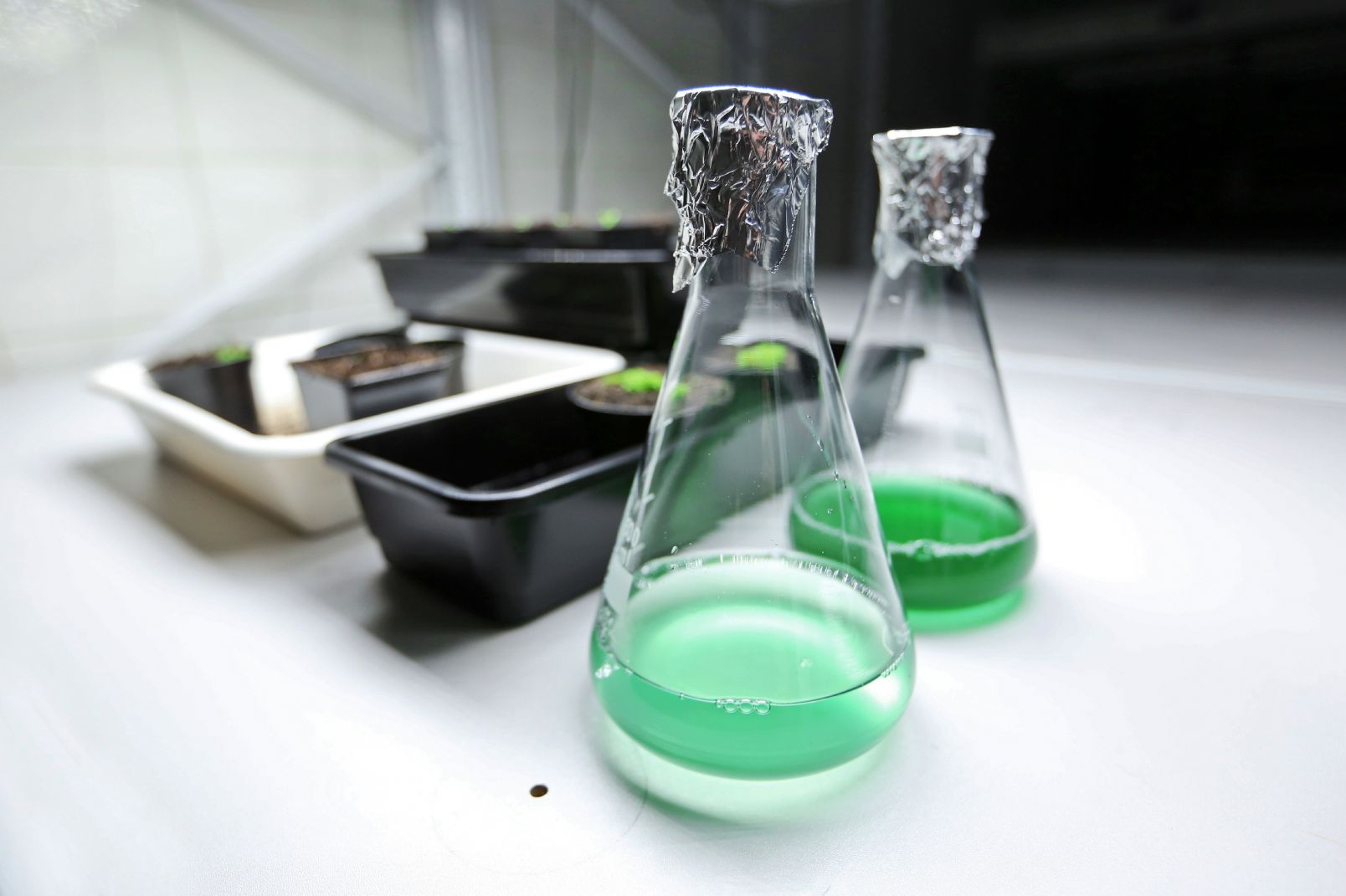
In USA, professor Krzysztof Zienkiewicz changed his research model. As professor Benning worked on plant and algae, the scientist from Toruń started his research on algae, seaweed which produces a lot of lipids. After stressing, they are plenty of fat during three days. This is the best model of research of the algae which could be used the production of biofuels as they produce fat fast and in large amounts. If we multiply it through cellular cultivations which contain a few hundred liters, we are able to squeeze from the algae really a lot of fats which are ideal triglycerides, which are a clear substrate for biofuel production – explains professor Krzysztof Zienkiewicz.
Professor Agnieszka Zienkiewicz found her way in Great Lakes Bioenergy Research Center. This unit is financed by the US Department of Energy, which invests a lot of money into renewable energy. The researcher worked in a team whose aim was to create transgenic plant which produces fats in leaves and stems. Our idea was to create plants from the seeds of which we could produce food, and from the stems and leaves – biofuel – explains the researcher Agnieszka Zienkiewicz. Due to the current climatic changes, there is less and less soil. It will be necessary to save it and to extract as much from the crops as possible, especially as the population keeps growing.
I received a grant according to which I was to work two years outside EU and one year in EU - explains professor Krzysztof Zienkiewicz
Those plants which the researchers attempted to force to produce more fats in leaves and stems were not too happy. They encountered a lot of problems, and are still working on possible solutions. They continued their work at the University of Göttingen. – I received a grant according to which I was to work two years outside EU and one year in EU - explains professor Krzysztof Zienkiewicz. - A grant project is always written between two laboratories. In my case, it was between the one under professor Benning and one at the University of Göttingen under professor Ivo Feussner. This name is also familiar to all European researchers of plant fats. My grant ended after a year but Agnieszka and I were offered contracts for associate professors in the project that was already being carried out. And this is how another four years passed.
Both scientists unanimously admit that had it not been for the grant contract that professor Krzysztof Zienkiewicz was bound with, they would have stayed in USA longer. Professor Agnieszka Zienkiewicz could still work there, however they decided not to separate, especially that she was offered a contract in Germany. – Again, typical problems of couples in science – say both biologists.
The scientists decided therefore to change Michigan for Göttingen. – People who move from US to Germany find it difficult to get used to a new reality – reckons professor Krzysztof Zienkiewicz. In the country of our wester border neighbors, every aspect of life and work is subject to rules. Germans are an organized nation. They want to control everything, and the administration and bureaucracy kill creativity and the freedom of science. We had worked at many other universities, got experience from other labs and therefore expected more independence.
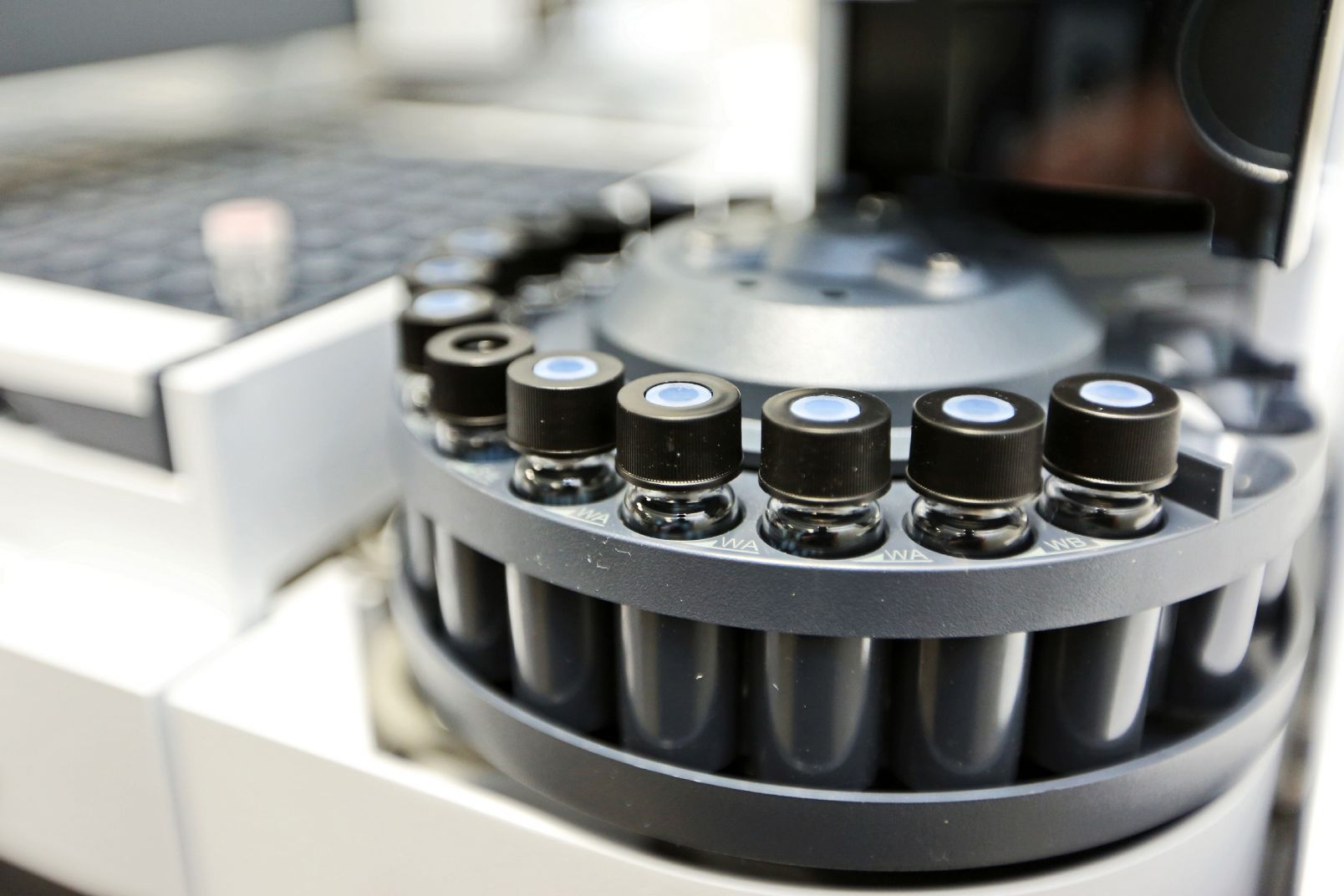
Therefore, after two years spent in Germany, they knew it was not the place where they would like to spend the rest of their lives. They had no chance for developing their scientific careers. They were senior postdocs without any perspective of habilitation as they were not compatible with the system. Without habilitation they would never become independent scientific workers. Due to the Central Committee for Scientific Degrees and the support of their mother university, they managed to undergo the habilitation process online. – Habilitation gives us scientific freedom, we may apply for grants, be directors of research groups – explains Krzysztof. – this is extremely important if you are over 40 as we are. If you are a senior postdoc, you must have your own research group to be visible, to have the opportunity to apply for a job in prestigious centers. If anyone sees in my CV that is have never been a director of a research group, never got my own grant, I am nonexistent on the labor market. It is different you are do you doctoral degree abroad as you automatically enter a different system.
Throughout their career abroad, both professors Zienkiewicz stayed in touch with Toruń, mainly through professor Andrzej Tretyn. – He has a great gift of persuasion and created for us very good logistic conditions for a return – claims professor Krzysztof Zienkiewicz. – He offered us that we return to Interdisciplinary Center of Modern technologies at NCU, and we took this chance. After four months of work in ICMT, I can say it was a good decision. When stetting our new laboratories, we were given a lot of support from both the directors and administration of ICMT. We were also given good office and lab infrastructure, which is invaluable in carrying out as many as four grants at the same time.
While in Germany, the researchers already applied for grants of National Center of Science. They handed in four applications. - We always apply just in case – explains Agnieszka. – We decently assumed that we would get one, or two at the most.
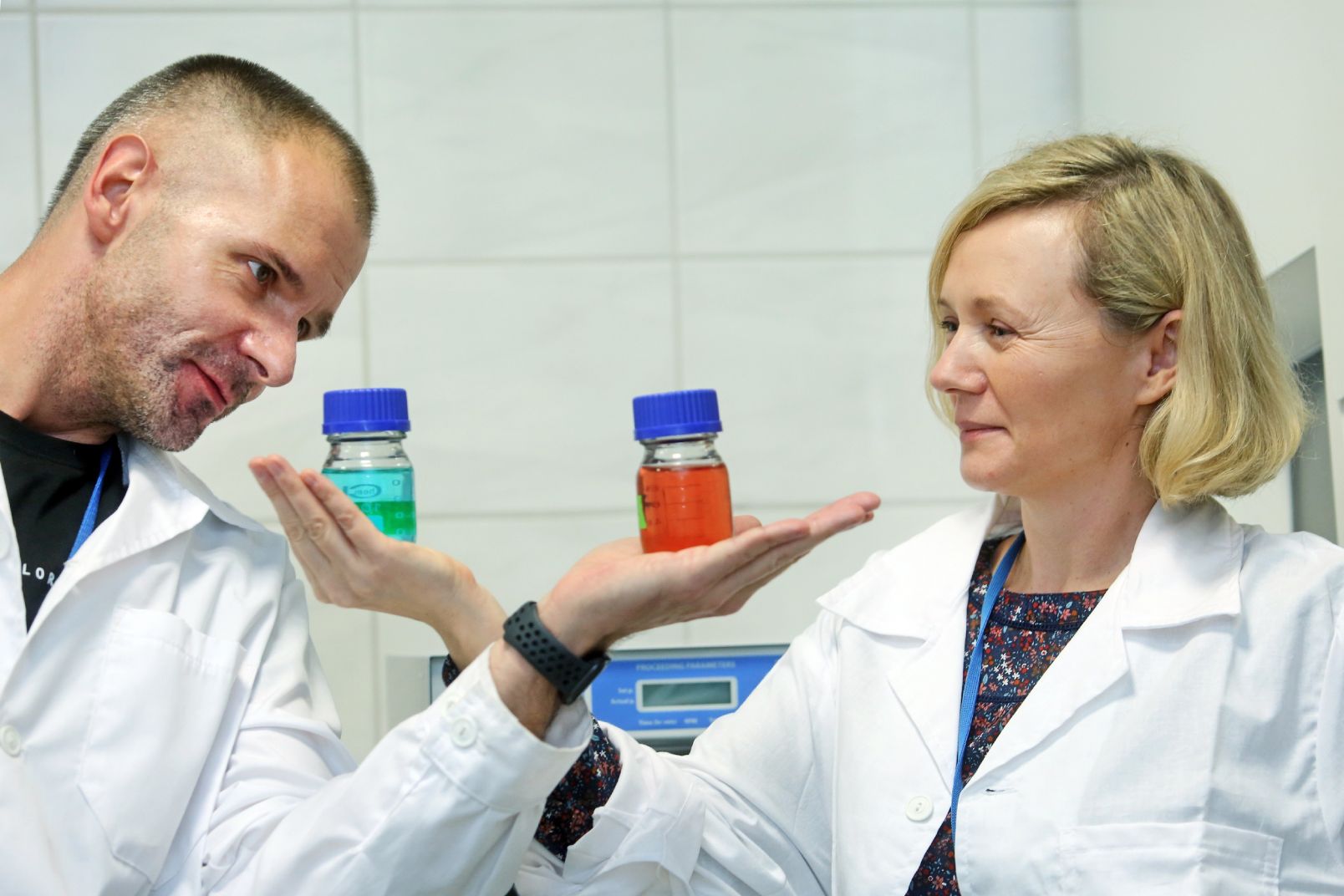
Andrzej Romański
In fact, we were given all of the four for the joint amount of PLN 10 million for five years. Professor Agnieszka Zienkiewicz was granted PLN 3,99 million for the project NCN Sonata Bis 9 "How to keep fat in leaves? Deciphering the dependency between accumulation and degrading of fats during leaves ageing", where she is doing her research on the mechanisms of fat accumulation in vegetative plant parts. She was also granted PLN 1,60 million for the project NCN OPUS 18 "The role of sphingolipid and their alleged transporters in the growth, development, and defensive responses in monocotyledon and dicotyledon plants", the aim of which is to identify the intracellular transporters of this very important class of lipids in plants. Professor Krzysztof Zienkiewicz was granted PLN 2,09 million for the project NCN OPUS 19 "Identification and characteristics of the mechanisms responsible for homeostasis of triacylglycerol in micro algae and oil plants", where he will examine how green cells control the level of fat. He was also granted PLN 1,84 million for the project NCN OPUS 18 "Synthesizing fats acyltransferase of diacylglycerol coded by the genome of oil micro algae Nannochloropsis oceanica – functional analysis and biotechnological applications", the aim of which is to examine the biotechnological potential of key enzymes which synthesize fat in a micro algae cell. Due to her two grants, the biologist Agnieszka Zienkiewicz may employ four doctoral students, one postdoc and one person in the position of support. The biologist Krzysztof Zienkiewicz will have in his team three doctoral students and one postdoc. – We have one doctoral student from Poland, but the rest of them are international – confirms professor Agnieszka Zienkiewicz. – We have taken on two doctoral students from India, one person from Thailand, and in February we will be joined by a person graduating from the university in Gent, Belgium. The language of communication will be English as we want to maintain the highest international level. This is our aim.
Due to the experience and international contacts of the researchers from Toruń, their doctoral students are guaranteed internships in USA, Honolulu and on the Hawaii. Each of them will have either of the professors Zienkiewicz as their supervisor as well as another supervisor abroad.
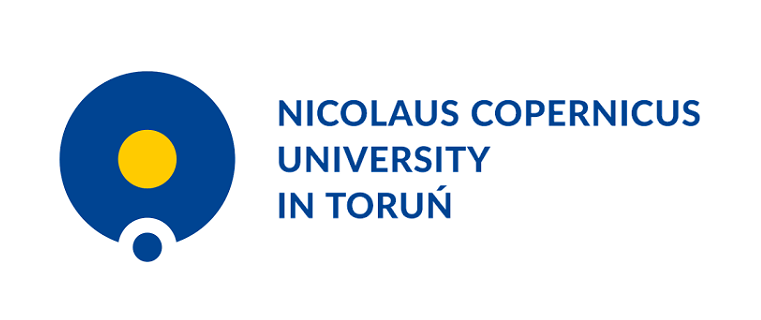 NCU News
NCU News






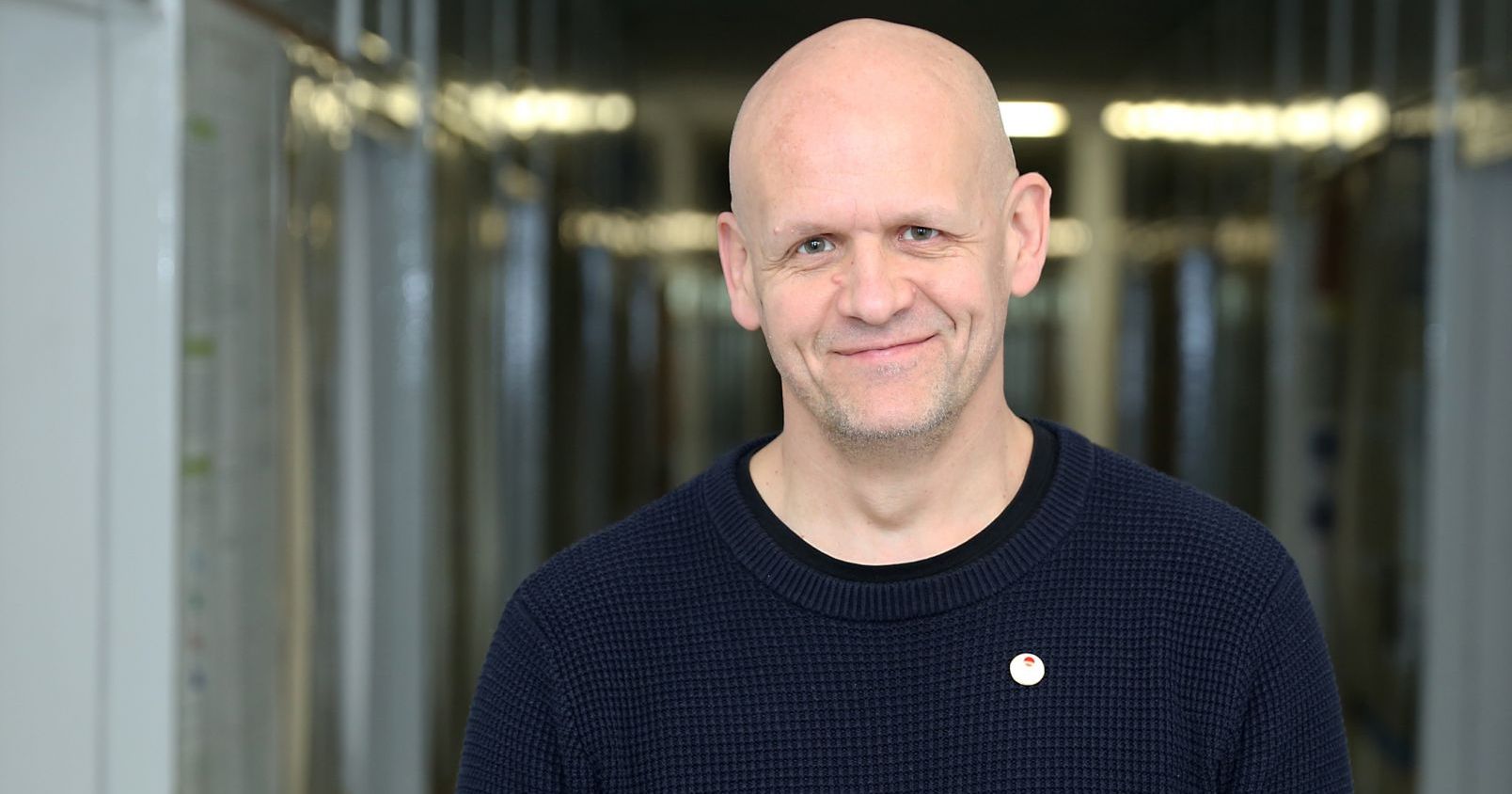 Natural sciences
Natural sciences
